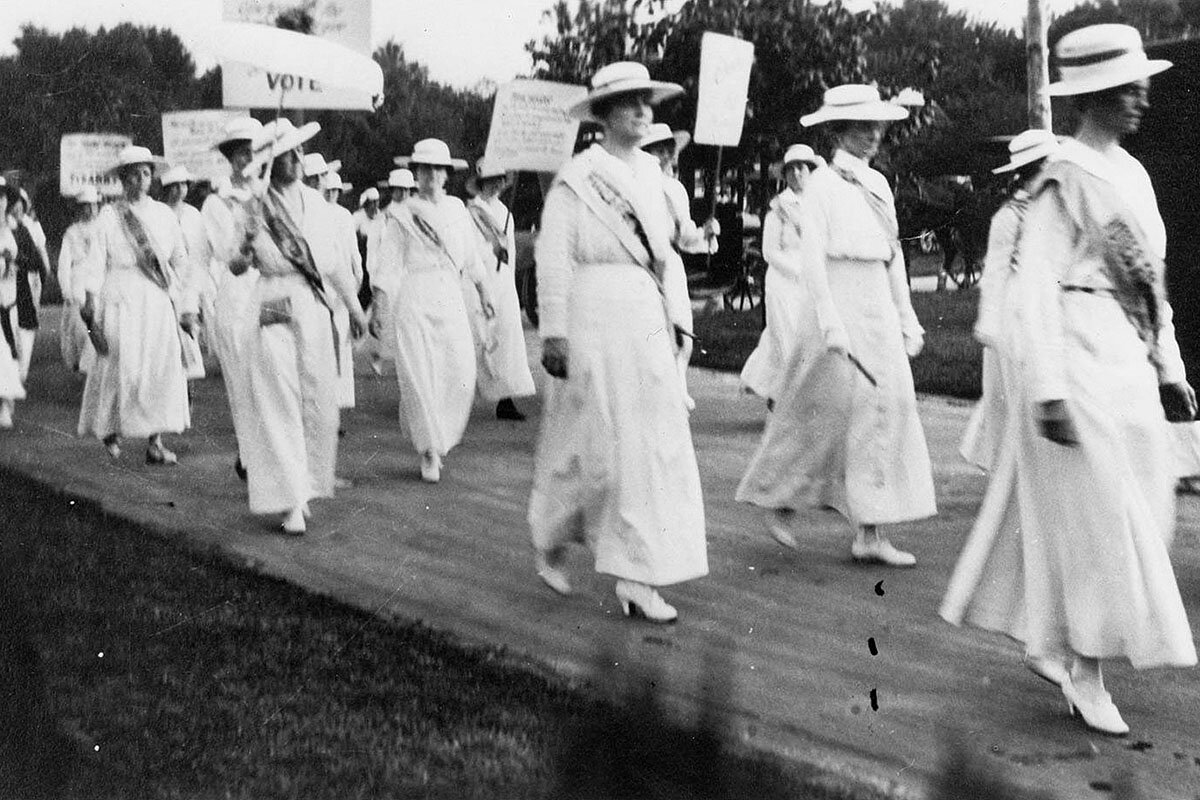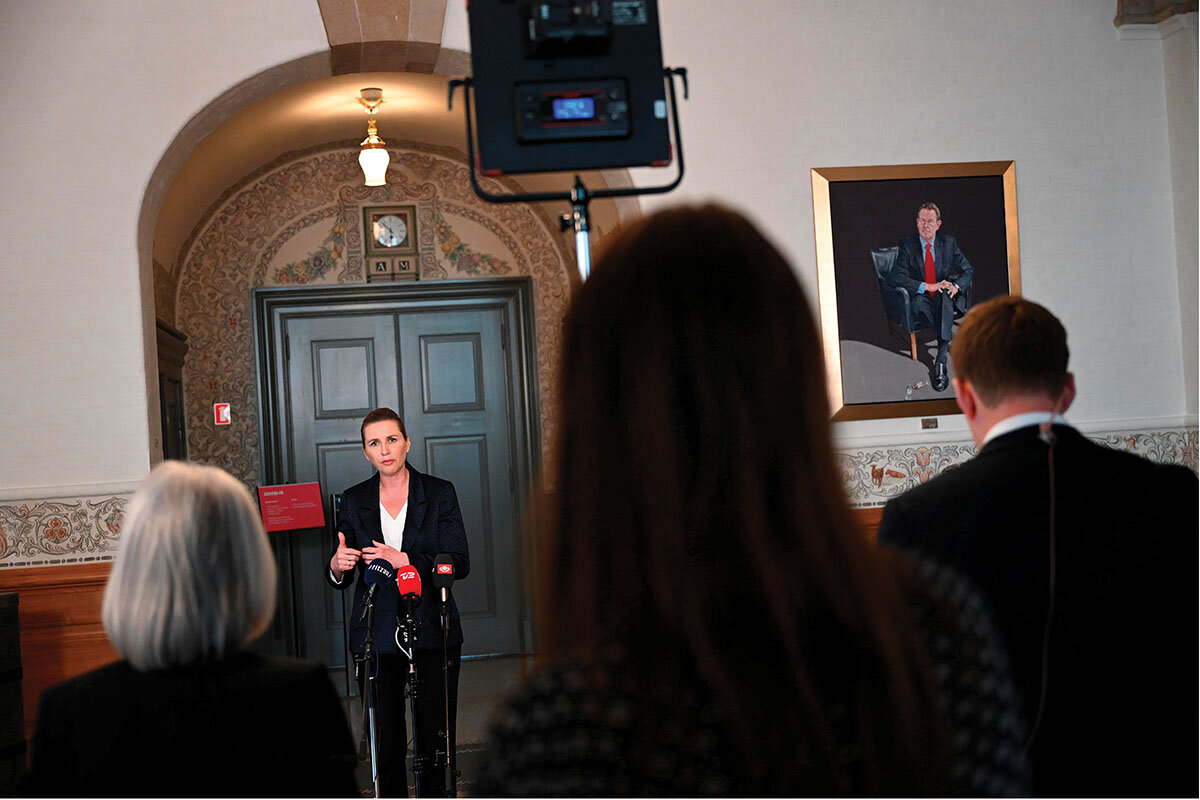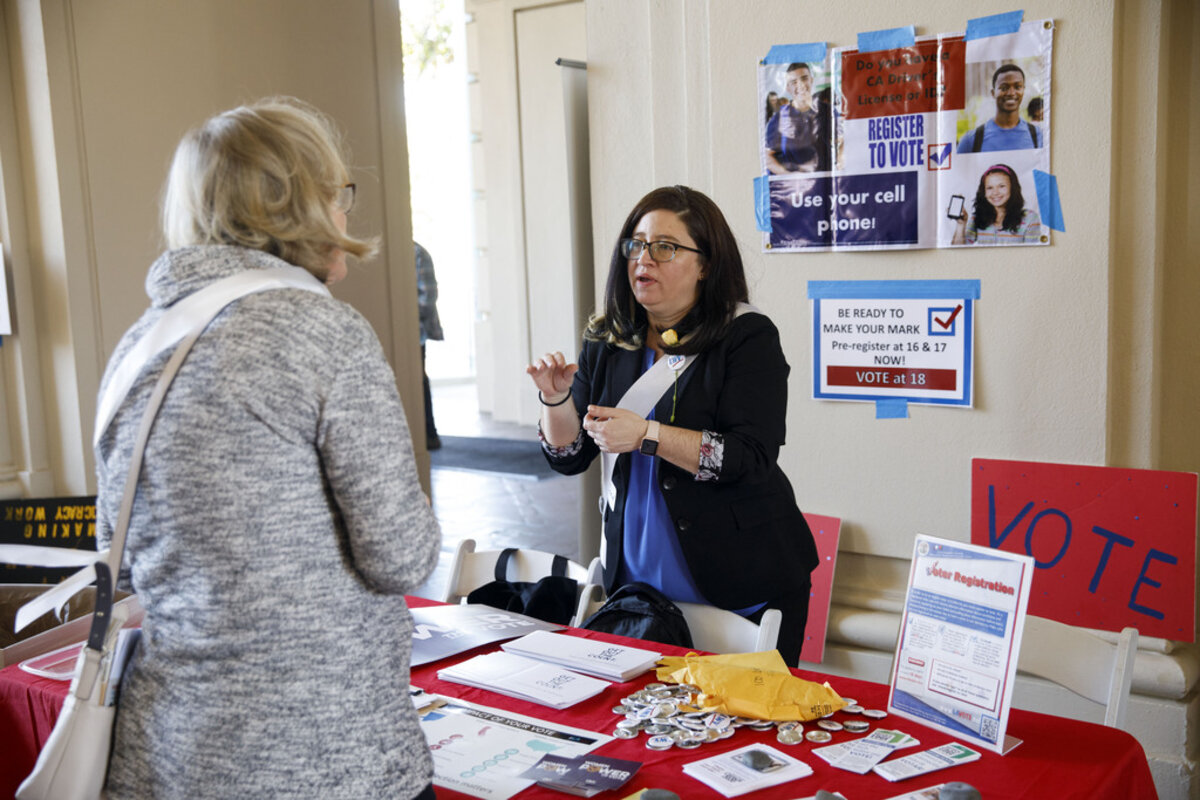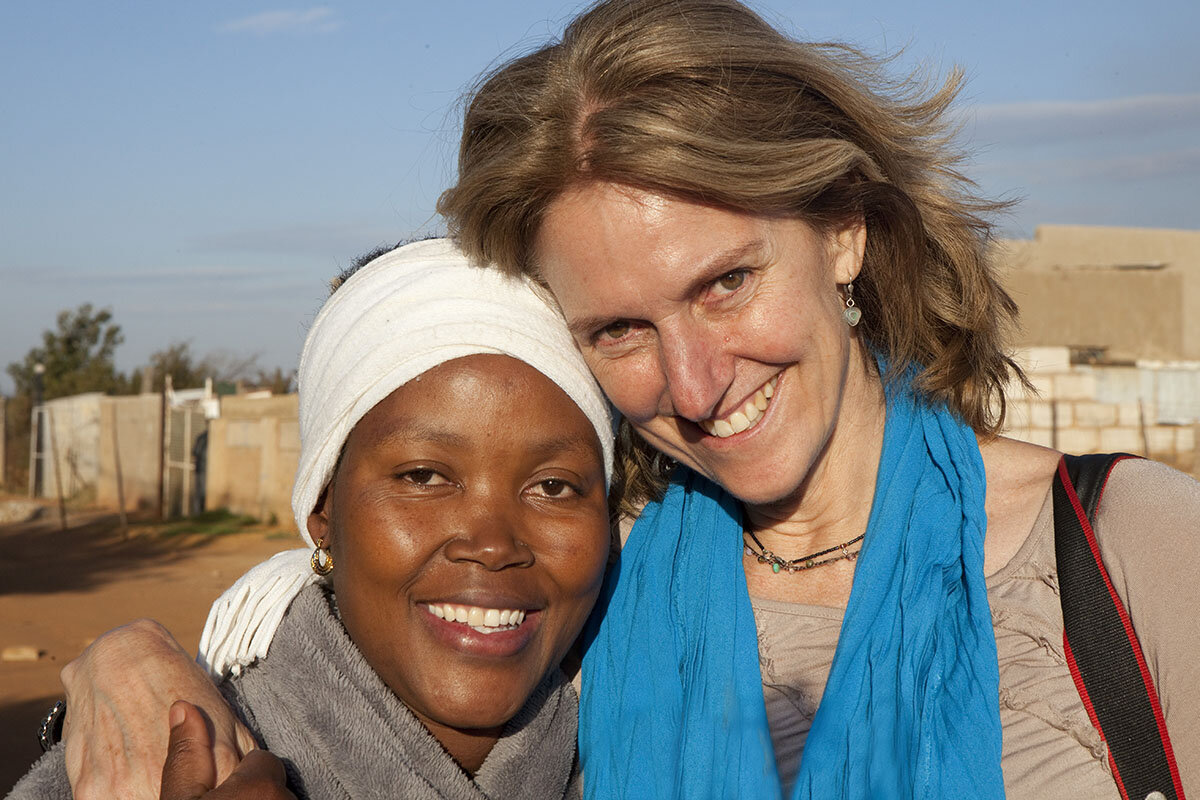The decadeslong fight for women’s suffrage is one of the defining civil rights struggles in U.S. history. It cuts to the heart of what democracy means – and holds powerful lessons for today. Part of our special 100th anniversary edition on women winning the right to vote.
Monitor Daily Podcast
- Follow us:
- Apple Podcasts
- Spotify
- RSS Feed
- Download
 April Austin
April Austin
In January, when a group of editors and writers first gathered to talk about how we should cover the 100th anniversary of voting rights for women in the United States, we never dreamed that the project would be overshadowed by a pandemic and by protests over racial injustice.
We wanted to tell the story not just of the 19th Amendment’s ratification on Aug. 18, 1920, and the ongoing struggle for equality today, but also of the evolution of women into global leaders.
One of the questions the group asked was: “Why has progress for American women not kept pace with that in many other developed nations?” After 100 years, shouldn’t women be on equal footing with men in every sphere, from boardrooms to living rooms to factory floors? We wanted to know what societal attitudes and perceptions impede this goal. We also wanted to explore leadership not just in the United States, but around the world.
We decided to devote the entire Daily package, and the Aug. 3 issue of the Weekly, to examining women’s progress (and lack thereof).
As we are learning, especially in recent months, a society cannot move forward with just one group holding the reins of power. Ultimately, leadership must be shared across race, class, economic status, and gender. Attitudes are shifting, slowly. As a professor in one story tells her students, “It’s not about ‘Just get out of [women’s] way.’ It’s walk the journey with them.”










